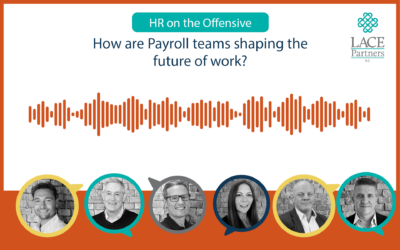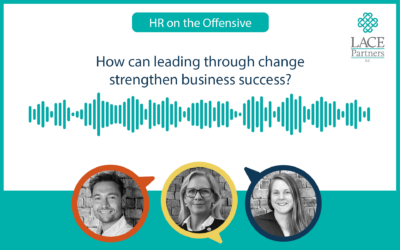In today’s “HR on the Offensive” podcast, Chris and LACEr Pavan Bilkhoo speak to Jig Ramji, Chief Talent Officer, as they explore skills-based organisations potential to redefine traditional HR practices and empower employees along the way. They discuss the ways this shift influences talent acquisition, reward systems and career progression as organisations prioritise skills over roles or hierarchies.![]()
This podcast is part of our Becoming skills-powered campaign where we are unpacking some of the BIG questions around skills approaches; from what the foundations are through to which skills solutions are right for you.
How can skills-based strategies empower your workforce?
The time has come where the opportunity to work outside the lines of traditional roles is possible. In many organisations there are usually a small portion of employees which are able to work across different projects or strategic initiatives, experiencing new types of work and picking up skills along the way. Skills based organisations offer this on a bigger scale, by not only allowing employees to leverage their existing skillset across in new areas across the business, but also learning more about their adjacent skills and spaces of opportunity for growth.
This puts employees more in control of their career paths, not only by clarifying what is required for progression but also by giving them the opportunity to explore what types of work they enjoy doing most.
How do you test if a skills-based approach is right for you?
Our experts explain that it’s important to run a pilot to test the feasibility of a skills-based framework to experiment on smaller segments of the organisation, such as early-career programs, to refine your approach. Alternatively, it might be that you want to solve a particular business problem, in which case you may pick a particular function for your skills pilot.
There are a number of different skills-strategies to choose from – whether it be skills-based hiring, talent mobility, or skills-powered workforce planning. Learn about our six key skills solutions here.
Ultimately, HR professionals need to partner closely with business leaders, determining the outcomes they are looking for rather than focusing on technicalities. Jig used the example of rather than focusing a lack of skills data as the core issue, it may be better to think about achieving tangible outcomes like improved workforce agility or strategic hiring.
What role can technology play?
There is both a technical and mindset shift at play when implementing skills approaches – and technology can accelerate both processes if used correctly. While many tools can help map skills, success depends on disciplined data management and clear definitions of terms like ‘skills’, ‘competencies’, and ‘behaviours’. Establishing a shared organisational language – or skills taxonomy – around these concepts is critical to ensuring alignment and simplifying implementation across diverse teams. Otherwise one team’s ‘stakeholder management’ is another’s ‘interpersonal skills’ and sharing skills across the business can become complex.
What are some of the behavioural challenges organisations could face?
At LACE we are passionate about sustainable change management, and in this case its an essential. Sticking to traditional structures such as hierarchical progression and static job descriptions, can stifle innovation and adaptability – but suddenly implementing a top down decision around skills vs jobs is likely to face resistance.
Jig also suggests reframing career development to directly celebrate diverse experiences and cross-functional mobility, backed by appropriate rewards and recognition systems to incentivise employees.
Listen now to learn how you can leverage skills-based strategies to not only future-proof your organisations but also to foster a more dynamic and inclusive workplace culture.
Want to be notified when the newest episode is released? Join here for HR on the Offensive podcast LinkedIn group.
You may be interested in:






